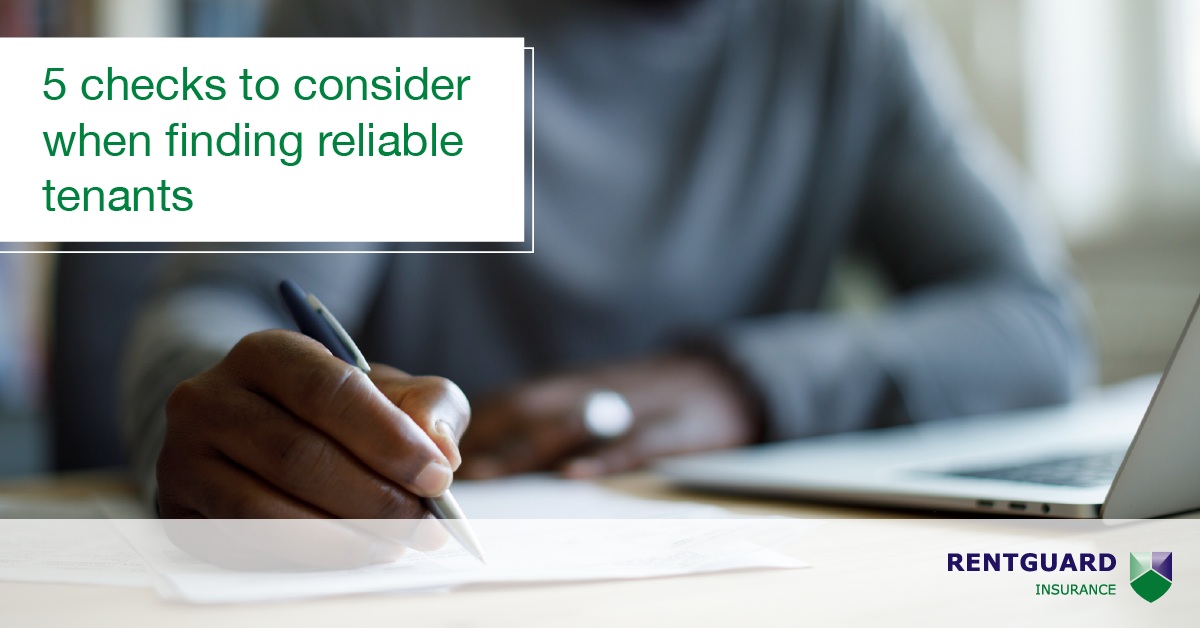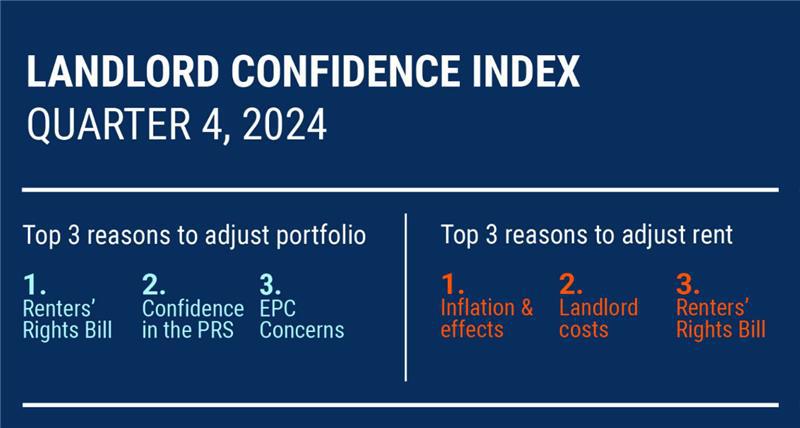

5 checks to consider when finding reliable tenants
Many landlords are concerned about the financial threat of tenants becoming behind on rent payments.
Whether it’s because they can’t or won’t pay, this can leave landlords feeling out of control with managing mortgage payments and other property bills.
As the Renters’ Rights Bill makes its way through the final stages of Parliament, the changes this new law will bring have highlighted the importance of finding suitable financial protection.
The Renters’ Rights Bill was recorded as one of the top three reasons why landlords are adjusting rent and why they are also adjusting their portfolios in the latest NRLA Landlord Confidence Index.

As the NRLA’s partner for providing Rent Guarantee Insurance, Rentguard has shared some key tips on what to remember.
If you’re looking for cover against rent arrears, you can get a quote online.
Once you find a policy, it’s important to understand and follow the terms and conditions to help ensure the policy and any claims you may need to make are valid. For example, Rent Guarantee Insurance policies typically require thorough tenant checks.
If you have any questions about the terms and conditions of Rentguard’s policy, you can contact their team by calling 0333 000 0169.
1. Get proof of income or employment from tenants before agreeing a tenancy
It’s important to obtain proof of income or employment from a tenant before agreeing to a tenancy for several reasons. Proof of income or employment can provide assurance that the tenant has a stable source of income and is therefore capable of keeping up with rent payments. It also helps landlords assess whether the tenant can afford the rent, ensuring that the tenant's income is sufficient to cover the rental costs along with other living expenses.
For landlords looking for long-term tenants, it’s important to check for a reliable income source to support the sustainability of the tenancy, reducing the likelihood of financial strain that could lead to rent arrears and the need for eviction.
2. Check that tenants have a positive rental history before agreeing a tenancy
Checking the rental history of a tenant, especially to see if they have prior evictions due to negative behaviour, can help provide peace of mind. A positive rental history indicates that the tenant is capable of looking after the property and paying rent on time.
If there are any negative reports, this can help to avoid letting to aggressive tenants who might cause issues for you and neighbours.
Selecting tenants with a history of being responsible and respectful can help to protect your investment and reduce the likelihood of potential issues.
3. Check that tenants have a good credit score and are clear of bankruptcy and CCJs before agreeing a tenancy
Confirming that a tenant has a good credit score and is clear of bankruptcy and County Court Judgments (CCJs) can be an important step in protecting your finances. A good credit score indicates that the tenant has a history of managing their finances responsibly, paying bills on time, and maintaining a healthy credit profile.
By selecting tenants with good credit scores and clear financial histories, landlords can reduce the risk of late payments, defaults, or financial disputes, protecting their investment.
Tenants with strong credit profiles are generally seen as more trustworthy and reliable, as they have demonstrated an ability to manage their financial commitments effectively.
4. Consider requesting a tenant has a guarantor before agreeing a tenancy
Requesting a tenant to have a guarantor can provide an extra layer of financial protection if there is any uncertainty about a tenant’s affordability.
A guarantor can ensure that rent payments are covered even if the tenant faces financial difficulties and is unable to pay. This can be beneficial for tenants who may have less stable financial situations, such as students, first-time renters, or individuals with limited credit history.
Knowing there is a guarantor can increase a landlord's confidence in renting to tenants who might otherwise be considered higher risk due to factors like low income or poor credit.
By accepting tenants with guarantors, landlords can broaden their pool of potential tenants, accommodating individuals who may not meet traditional financial criteria on their own.
5. Request tenant references from previous landlords before agreeing a tenancy
Requesting tenant references can help landlords with making informed decisions.
Tenant references can provide valuable insights into the tenant's behaviour, reliability, and how they have managed previous rental situations. They also help verify the information provided by the tenant, such as rental history and adherence to lease agreements, ensuring accuracy and honesty.
Previous landlords can offer firsthand accounts of the tenant's reliability in paying rent on time, maintaining the property, and following community rules.
By obtaining references, landlords can reduce the risk of renting to problematic tenants who may have a history of late payments, property damage, or disputes. Positive references from previous landlords can help to provide peace of mind, suggesting a lower likelihood of issues arising during the tenancy and confirming the tenant's suitability.
Legal Expenses and Rent Guarantee Insurance from Rentguard
You can take every step to make your buy-to-let investment successful, but despite your best efforts, some situations are unpredictable. Legal Expenses and Rent Guarantee Insurance can help to provide peace of mind that if issues out of your control occur, such as a tenant failing to pay rent and remaining in the property, you have suitable cover in place.
Or speak to our specialist team on 0333 000 0169.
The sole purpose of this article is to provide information on the issues covered. This article is not intended to give legal advice, and, accordingly, it should not be relied upon. It should not be regarded as a comprehensive statement of the law and/or market practice in this area. We make no claims as to the completeness or accuracy of the information contained herein or in the links which were live at the date of publication. You should not act upon (or should refrain from acting upon) information in this publication without first seeking specific legal and/or specialist advice. Arthur J. Gallagher Insurance Brokers Limited trading as Rentguard and National Residential Landlords Association, an Introducer Appointed Representative of Arthur J. Gallagher Insurance Brokers Limited, accepts no liability for any inaccuracy, omission or mistake in this publication, nor will we be responsible for any loss which may be suffered as a result of any person relying on the information contained herein.
National Residential Landlords Association is an Introducer Appointed Representative of Arthur J. Gallagher Insurance Brokers Limited, which is authorised and regulated by the Financial Conduct Authority. Registered Office: Spectrum Building, 55 Blythswood Street, Glasgow, G2 7AT. Registered in Scotland. Company Number: SC108909. Rentguard is a trading name of Arthur J. Gallagher Insurance Brokers Limited.

